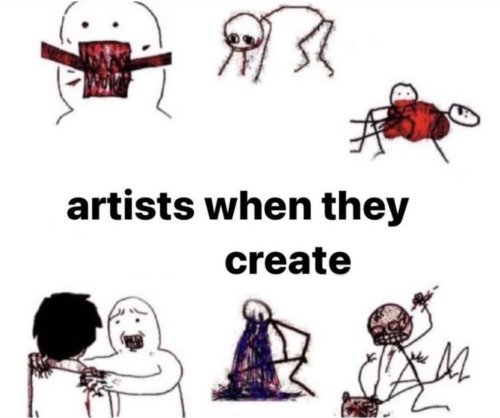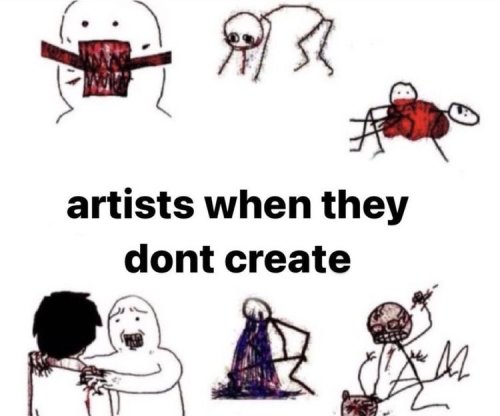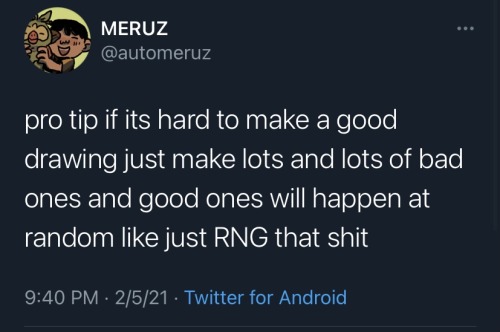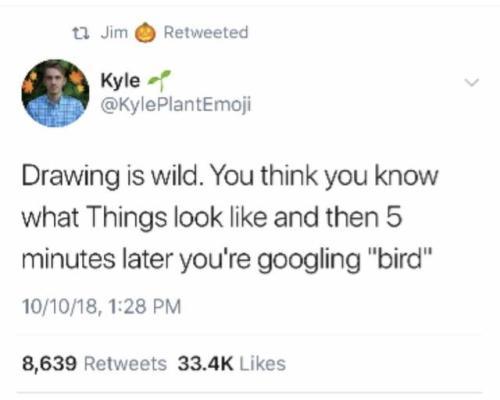Shadyglitterbeliever - Heal Yourselves


More Posts from Shadyglitterbeliever and Others
A story

Jon was a better pick for head archivist (the profession not the godhood) than Sasha according to me, a Jon apologist/Sasha stan with a masters degree in information science
1) a disaster pit of an archive like Gertrude's requires a work horse like s1 Jon, not someone easily lost in the weeds like Sasha. For a body of information that huge, with subject matter that broad (even just 15 fear subjects is broad when you consider the overlap and highly subjective, contrasting nature of the statements), you want to create as little work for yourself as possible until you've built a foundation. Ergo, in this early stage you want a project manager who has the ability to burn through busy work, resists distractions, and remains open to his team's input for future endeavors while keeping them on track.
I also have a hc that a disorganized archive bolstered the Eye's hold rather than undermined it because that meant that only Eye-aligned people had the ability to navigate it. So in a normal case, I'd assume they could just call up one of their sister archives and borrow their database or taxonomy, because why reinvent the wheel, but here I suspect that messy records were an industry standard designed to lure in people with a craving for tidy answers. It's possible that no-one at any location had successfully organized their statements, or at least not before getting indoctrinated with some mark or another and abandoning the task.
2) Referring to statements by their dates isn't a bad idea when first tackling a project this unclear. When you create a spreadsheet map of your body of information (literally just a giant inventory list), I was taught to also provide an ID column to designate each collection item with a uniformed shorthand for easy, clear communication and notes. Think dewey decimal. It can be something simple as sequential numbers or dates. Why use dates and not statement giver names? Confidentiality is likely a behind the scenes factor in statement acquisition. Some of the statements are anonymous. Some names double. And the series demonstrates that statement givers rarely visit twice in one day, much less twice a week or month, and even if there are, they can tack a .1 on the end or something. This shorthand ID key will likely change no matter what once they familiarize themselves with the content enough to build a more thoughtful catalogue. So since that makes this a placeholder anyway, dates as a good-enough-lets-keep-moving ID would be my pick, too, ESPECIALLY because of point #3
3) the catalogue is nonexistent in s1, so the most pressing task is to create a taxonomy. Remember, a catalogue is a giant inventory list, a taxonomy is a predetermined, uniformed list of words to be used as metadata, which is like tags. We need taxonomies because a computer will think that The Eye =/= Beholding, so we build catalogues that only allow people to utilize one synonym to avoid inconsistencies. Building a taxonomy would be atypically difficult in the magnus archives, considering how unrelated or overlapping or contradicting all the statements are to someone not in the Know. Trying to pin down a vocabulary on day one will only create more work because it'll almost definitely need massive revisions. That's why it makes sense for someone to closely read several random statements with post-follow-up clarification in order to analyze the subject matter and slowly define a work-in-progress metadata. If they have a chance to kill two birds with one stone by making a recording? Go for it. I would not commit this task to EVERY STATEMENT EVER, but rather to a handful at first to help chisle out that high priority taxonomy, which is what one statement per week amounts to. Which leads me to point 4:
4) Jon's attitude toward s1 Martin was uncalled for and unprofessional, but Jon's frustration makes sense. Martin's existence on that team was likely justified to Jon by his fake masters in parascience, which makes Martin the technical subject matter expert. He's presumed the only one qualified to determine that critically important taxonomy because it'll have to be consistent with vocabulary and classification systems already established in Martin's field of study so that visiting experts can easily navigate it. Martin 🙃 is none of these things 🙃. So from Jon's pov, his technical subject matter expert is either A) being deliberately obtuse by offering tea and conversations about jigsaw puzzles with old ladies instead of results, which adds work to his already enormously laborious project For Funsies I Guess??? or B) Martin did not retain his masters program/doesn't know how to apply his skills practically and therefore isn't actually qualified to help with the task at hand. Or? C) Martin got a bullshit degree, landed a job where he can't get fired (supernatural contracts aside, libraries are famous for job security) and is now half-assing assignments that Jon is on the hook for since he knows he can get away with it, because tbqh some coworkers are genuinely Like That. All of which means that Jon now has to cover their collective asses by overworking to compensate for Martin's percieved fallthrough and record/analyze the statements himself to protect his team and to avoid admitting he couldn't succeed with Elias' hand picked resources.
This is maybe the most frequent citation against Jon's management skills, but the only reason Sasha may have avoided the same trap is because she invaded Martin's privacy and learned about his lie. Which... doesn't really improve the situation, just creates new problems. And also takes us to #5:
5) Sasha, light of my life, did not have people skills that made her excel at managment just because she's charming and confident. The main reason: she's habitually invasive as a coworker and employee. Imagine the conflict that behavior would have shifted into if the power dynamics tilted, if she was in charge of the people she wanted information from (it's an excellent, rich source of conflict, tho, don't get me wrong.)
Jon stalked Tim for a few weeks, maybe a month or two, because he was scared for his life and this became the catalyst for their relationship deterioration. Comparatively, Sasha stalked Jon and Martin presumably their entire working relationship, or at least enough to at least learn Jon's real age/multiple password changes and Martin's fake CV secret, all for fun. Moving past s1, Jon accidentally compelled mundane secrets out of Melanie and Basira which resulted in swift retribution. How long do you think those two would have humored Sasha's active, remorseless boredom?
Also? If the only issue is people skills, then tbh if I was coordinating this employee transfer, I would say to myself "I've heard that Jon's occasionally difficult to work with, but his work style is suited for the task. I'll just let him pick his team to make sure he gets along with everyone. We need a subject matter expert tho, so I'll include that one guy in the library who's a cuddly people pleaser, that will help smooth over any clashing personalities."
6) oh? Jon deniers say this is a public facing job and he needs to be more lovely? Bitch, the public treats jobs like this as basically free, walk in therapy. I've had public facing jobs similar to Jon's. If you don't go in with firm, predetermined boundaries, you'll burn out immediately and become a doormat. If anything, s1 Jon is the perfect combination of "my job is to offer One Service, and if that is not the service you need then move along, I'm not being paid to suffer fools." mixed with "I've decided my One Service includes a willingness to listen in full and let you define your experiences for yourself in a time when the world is likely trying to dismiss your fear and tell you what you saw."
7) insofar as formal training goes, information science is the type of field where sometimes people are just absurdly suited for it because they already interact with the world with those skills. I have a coworker who basically gave a work training on Info Sci fundamentals for fun and when I tagged up with her after, she had no idea that was even a field. Jon and Sasha imo are among those types that click naturally with information science, so I personally do not fault them for not having a specialized degree. If anything, Jon might have recognized his natural inclination and applied for the job for that reason a la "might as well, the worst that can happen is I'm told no." Did they all still need some kind of formal training to properly manage an archive? Yes. Was their need for guidance JUST info sci related or did they much more desperatly need real answers on malevolent eldritch forces delibrately obfuscated from them to, specifically, prevent them from safely doing their jobs? Probably a combination, but leaning much more heavily toward the later. So imo, they weren't unqualified because they didn't have a grasp on info sci, they were unqualified because there was a 200yo contrived plan to keep them ignorant.



Will wood but he’s these beautiful pictures by zhonglin_ on instagram
"when the pandemic hit, a lot of musicians were forced to become 'content creators' which I like to think as a slur for 'artist'".
Women aren’t the main enforcers of femininity, but...
I’ve seen several claims going around that most external pressure to be feminine comes from other women. I acknowledge that it does happen, I have personally experienced it, but I do have a problem with the qualifier ‘most’.
It might be more overt in the way your mother tells you to shave your legs or to put on a little make-up, but there are many (male) sources in society which imply the same thing and enforce worse consequences than your mother being disappointed with you.
I think it’s easy to overlook the pressure men put on women of any sexuality to be feminine, because they say one thing and do another. Furthermore, a lot of the pressure from males already starts in primary school and I think many of us have forgotten that.
Men claim to hate femininity, because it’s high maintenance and time consuming to keep it up. They say they prefer it when women are natural, yet they don’t seem to realize that no woman is naturally feminine the way they want her to be. They hold contradictory beliefs, without being completely aware of it.

One of the most well known examples of this, is the fact that when men say they prefer ‘no-make up’, they mean no make-up make-up. They might not immediately call you a man for genuinely not wearing make-up, but they will put pressure on you by theorizing whether you’re sick or tired.
These aren’t throwaway comments with no meaning or effect on our lives. They hit us right in the wallet. Employers view make-up as an important aspect of self-care and a sign that you’ll take care of them too.

This belief is visible in statistics.

This hasn’t changed since the lockdowns and seems to have become more overt.

In some countries, like Malaysia, this has been part of government guidelines.

Ceasing the performing of femininity is pathologized.

The lack of performing femininity is viewed by many so-called mental health professionals as warning signs of mental illness. Women who have spent time in psychiatric hospitals or have visited therapists in the past, might be familiar with this phenomenon.


The fact that the lack of performing femininity has historically been pathologized is on its own enough evidence that women aren’t the sole enforcers of femininity, considering that it’s only been fairly recent that the majority of mental health professionals in several countries are female. This belief is stil enforced today in psychiatry, this is sometimes justified with the idea that it’s only a warning sign if someone used to wear make-up or shave, but now doesn’t anymore. Which seems to suggest that if you find radical feminism and cease to perform femininity, you are showing signs of mental illness, which seems like the old misogynistic fable that feminists are simply ‘hysterical’.

This is visible too in anti feminist propaganda, where feminists are portrayed as gender nonconforming, passionate and it’s implied that this is a bad thing. Sometimes this likes to mask itself as feminist media, where the message is ‘Good feminists are feminine, bad feminists are non conforming.’ With feminine not necessarily meaning that a woman is emulating barbie, but that she’s still performing enough femininity to be appealing. Typical liberal ‘’feminism’’.
The ceasing of performing femininity is further pathologized with the concept of transgender. Many of the supposed signs of gender dysphoria are characterized by the act of doing nothing.
You might argue: but we accept tomboys! The problem with the concept of tomboyism, is that there is the implicit expectation that the girl will grow out of her non conforming ways. When she doesn’t, this is quickly seen as a sign of deviance and nowadays of being trans.
The idea of female childhood nonconformity is not new and used to be encouraged for nefarious reasons.
“During the 1840s and ’50s, when the abolition of slavery began in the U.K. (the U.S. would follow in the 1860s), social elites became concerned about the physical health of white women due to restrictive clothing and a lack of exercise. Amid fears that white people would become a minority as more immigrants arrived and abolition neared, white women were encouraged to lead more active, outdoorsy lifestyles. The tomboy became a perfect cure for white malaise. It would, in theory, better prepare young white women “for the physical and psychological demands of marriage and motherhood,” as Abate writes, and further ensure that the white race would not die out. “
Which doesn’t mean that there is any problem with female childhood nonconformity, but there’s been a trend for over a century now that nonconformity is something to be left behind during our journey to adulthood.This is also why even some conservative fathers have no problem with their tomboy daughters, until she reaches an age at which he deems she should find a man.
The father might not like the mother try to teach you how to put on mascara or ask you to wear a dress, but he will show his distaste for nonconformity in adult women around you. Daughters will internalize these messages, even though they might not have a clear memory of these instances, unlike her experiences with her mother being a direct enforcer of femininity.
This continues in school. Boys hear their fathers say these things too and start to police girls in school. They will point out the first signs of female secondary sex characteristics, including bodyhair, implying or directly stating that it’s unhygienic. This can lead to a girl coming home crying from school, asking her mother what to do and her mother will teach her what was taught to herself at one point. These girls will go to school and start to police other girls, after internalizing these messages.
Not acknowledging the males who play a vital role in this cycle, is pure misogyny, not unlike the idea that all women are “catty mean girls”. It’s a self fulfilling prophecy fueled by rumors originating from men.
Where did the mother get the idea from? Was father disillusioned with her body hair after being exposed to copious amounts of pornography? Waxed, airbrushed skin on pages and videos? Or is it caused by what evolutionary psychologists like to posit, that men are simply attracted to pre/peripubescent features due to “signaling youth and peak fertility”, even though prepubescent and peak fertility are two contradictory concepts. Whatever the cause might be, this phenomenon shows that men are an important source of enforcing femininity.
Men universally enforce femininity implicitly from our childhoods, throughout all our lifestages. Many do it explicitly and especially heterosexual women receive the brunt of this. Yet same sex partnered bisexual and homosexual women are not spared, considering this still happens during our careers and when we reach out for help with our mental health. Nevermind the fact that gender nonconformity is seen as a sign of homosexuality, which is not completely unjustified, but often encourages negative or downright lesbophobic responses from more conforming individuals when meeting gender nonconforming individuals. Not being appealing to men is for some reason the worst insult many men can think of.
The reason why fewer heterosexual women are gender nonconforming, may play a role in wanting to attract a man. Even if this is subconsciously. Media and social pressure makes the message clear: femininity is required to attract men. Even though ceasing the performance of femininity doesn’t stop men from harassing women.The message might be even more amplified ever since the advent of liberal feminism, which posits that performing femininity is empowering. This instead of acknowledging that it’s financially draining, time wasting and restricting women’s movement and can’t be a true choice in current society.
Even when opposite sex attracted women choose to not date men, they might still feel the need to perform femininity, due to the entanglement of beauty and hygiene. Women not shaving is seen as unhygienic, not for any objective reasons, but due to men’s personal aesthetic preferences. It might not always result from heterosexual men for sexual reasons; much of it has resulted simply from the wish to not only market razors to men, but also to women.

King Camp Gillette was the man behind the lady razor and the one to thank for adding an extra 15 minutes to our shower time. Prior to 1915, body hair on a woman was seen as a non-issue thanks to the straight-laced styles of the Victorian era — with women draped and buttoned up to the chin, shaving your armpits was as odd and unnecessary as shaving off your eyebrows. But when Gillette realized he could double his profits by doubling his customers and introducing women as shoppers, he got to working on how to bring blades into powder rooms. “Gillette was very canny about increasing consumption of his products, and targeting women was one part of that strategy,” Rebecca M. Herzig, author of Plucked: A History of Hair Removal , shares in an email interview with Bustle.

The key in making women buy the product was to make shaving a new but unmistakable part of womanhood. Gillette knew that, and so he and his publishers used polarizing words in their ads, drawing a hard line between what it meant to be a man and a woman. “As the first company to introduce the concept of shaving to women, Gillette was cautious not to be too modern. In their early advertisements for women, Gillette did not to use the word ‘shaving’ but the word ‘smoothing’ instead. ‘Shaving’ was an activity men engaged in; ‘smoothing’ was more feminine,” Kirsten Hansen, a graduate of women’s liberal arts school Barnard College, explained in her senior thesis. “Very few Gillette ads for women used words like ‘shave’ or ‘razor’ or ‘blade’ at all. The cultural association between men and blades was so deep and so old that they had to worry about making their products seem ‘feminine’ enough,” Herzig confirms.


This association of not performing femininity with being ugly and unhygienic, especially when it comes to bodyhair, is so ingrained in society that even homosexual women are affected by these beliefs. Without ever having to date a man, just existing in patriarchy is enough to feel like you’re ugly or unhygienic for not shaving or wearing make-up. Lesbophobes remind us of it often enough. These feelings end up being internalized and projected on butches, who are sometimes chastised even by other homosexual women for being a higher degree of nonconforming than ‘acceptable’. This can happen the other way around too.
This may seem like evidence that women are the sole source of the enforcement of femininity and that men just “don’t care about all that stuff”, yet whichever route you take to trace back the origin of these beliefs, you end at men.
And not only heterosexual men, we cannot forget that there are many homosexual men in the beauty industry who further propagate these beliefs too. Which women then internalize.
You cannot blame the mass delusion of society, in which we accept men in their natural state as normal, but women have to get rid of secondary sex characteristics and doll themselves up in order to be “normal”, solely on women. Men are the original source and they have to be, because why else would this even happen in societies where women basically had no positions of power?
The trend of hair removal continued into Europe, where Ancient Greek women were expected to remove their pubic hair. A full bush was considered “uncivilized,” Sherrow writes, and the artists of the time did not show signs of pubic hair on statues portraying women.
Or how women in some cultures only started shaving, due to globalization?
But researchers say the study shows how globalization might influence attitudes about the hair, ahem, down under.
For example, the Amhara society’s religious doctrine initially required that men prune their pastures with razors and women by plucking; the reverse was unforgivable. But once the European razor blade was introduced to the Eastern African region, women started shaving and men stopped removing their pubic hair at all.
This is regarding pubic hair, which is usually not visible to other people in one’s day-to-day life, but what I’m trying to get across is that negative attitudes towards female bodyhair are subjective and aren’t a natural result of women interacting with each other. The enforcing coming from women only happens after the concept has been internalized in both society and women, which is mainly done by men.

Since this is such an ubiquitous and insidious problem in our patriarchal society, I again have to advice separatism and examining your reasons for performing femininity. I’m not attacking you for wearing a dress. Simply if you’re doing something which men aren’t, which has no real objective reasons for doing it, it drains you financially and harms your mental health; maybe don’t do it anymore. And yes you might receive flack for it, which is why we need more female-only spaces and womynslands where we can be free and heal.
While we’re not the only enforcers of femininity, unlike what men claim, that doesn’t absolve us or mean we’re not negatively affected by it. It affects our mental health, our self esteem, our wallets, our energy, our time and when we perform femininity we’re just another crab in the bucket. Women benefit from other women being nonconforming, so maybe one day they have the courage to be nonconforming too. We need to normalize it.


This is also why I take issue with the “no woman is conforming” argument. Yes, no woman can fully conform to the prescribed gender role and perform femininity perfectly, but there are degrees to this. It doesn’t mean we can just shrug and say we’re doing enough now already, when many of us still disadvantage ourselves with these practices. It’s also not truly a choice, considering the stigma which still exists today and any attempt at positing it as a choice reeks of liberal feminism.
It also ignores what feminists before us have protested against.

In September 1968, around 400 feminists agreed, protesting the Miss America pageant in Atlantic City, New Jersey. Demonstrators clogged the storied boardwalk abutting the convention center, picketing the pageant with sardonic signage and a “Freedom Trash Can” into which they tossed objects symbolizing female oppression, including cleaning products, high heel shoes, makeup and hairspray, copies of Playboy and Cosmopolitan, girdles, and bras. (This is the origin of the “bra burning” feminist trope, though none of the objects in the trash can were actually set on fire.) At one point protesters crowned a live sheep Miss America, likening the pageant to judging livestock at a county fair.

So while the idea that women are the main enforcers of femininity is misogynistic and demonstrably false, we’re the only ones who are willing to change. We’re the only ones who will encourage women existing naturally. Men aren’t going to, I’ve discussed this in previous posts, nor is the media going to. We can either shrug our shoulders and keep performing, or cease performing and experience a ‘new’ sense of freedom.











a selection of artist memes hand-picked and curated by me based on my own experiences

spent a lot of time on tumblr as a teenage boy and due to my interests/ general culture of the site back 8 or so years ago, I would see a lot of radfem stuff and kinda just took it all on board uncritically ? I feel like it might’ve destroyed my self image + ability to socialise because I have this feeling like I am inherently evil no matter what. whenever I talk to women I can’t get out of my head that they are afraid of me/ think I am predatory. every interaction I am hyper focusing on my behaviour to make sure I am coming across as non-threatening. to the point where this is all I am concentrating on in any given interaction. this is just in normal social contexts btw, idek how to navigate a close friendship or anything romantic/sexual.
idk how to explain it apart from I feel like I’m evil and I need to ‘protect’ everybody from myself. so I try so hard to be easygoing and stay out of others’ way. and if somehow a person is interested in me, I think ‘this is what evil people do. they trick others into liking them’ and I will back away from the person as a way to ‘save them’.
I honestly wish I was a cis woman sometimes because I know that I would never have to worry about coming across as predatory/threatening.
it stresses me out so bad and there is no one irl I can talk to about this cos I don’t know how to properly explain it without sounding insane.
.
-
 xluxsolarisx liked this · 1 month ago
xluxsolarisx liked this · 1 month ago -
 pestos-cafe liked this · 1 month ago
pestos-cafe liked this · 1 month ago -
 luxaii reblogged this · 1 month ago
luxaii reblogged this · 1 month ago -
 luxaii liked this · 1 month ago
luxaii liked this · 1 month ago -
 rozypoyo liked this · 2 months ago
rozypoyo liked this · 2 months ago -
 thefrogprince reblogged this · 2 months ago
thefrogprince reblogged this · 2 months ago -
 august-rain-storm reblogged this · 2 months ago
august-rain-storm reblogged this · 2 months ago -
 honeybouquets reblogged this · 2 months ago
honeybouquets reblogged this · 2 months ago -
 cosmiquealiene reblogged this · 2 months ago
cosmiquealiene reblogged this · 2 months ago -
 namelessman2 reblogged this · 2 months ago
namelessman2 reblogged this · 2 months ago -
 namelessman2 liked this · 2 months ago
namelessman2 liked this · 2 months ago -
 necruwumancy reblogged this · 2 months ago
necruwumancy reblogged this · 2 months ago -
 dirt-apple-productions reblogged this · 2 months ago
dirt-apple-productions reblogged this · 2 months ago -
 dirt-apple-productions liked this · 2 months ago
dirt-apple-productions liked this · 2 months ago -
 seraphghosts reblogged this · 2 months ago
seraphghosts reblogged this · 2 months ago -
 kindaweiird reblogged this · 2 months ago
kindaweiird reblogged this · 2 months ago -
 kindaweiird liked this · 2 months ago
kindaweiird liked this · 2 months ago -
 batsintheshadows reblogged this · 2 months ago
batsintheshadows reblogged this · 2 months ago -
 istherewifiinhell reblogged this · 2 months ago
istherewifiinhell reblogged this · 2 months ago -
 undistortedworld reblogged this · 2 months ago
undistortedworld reblogged this · 2 months ago -
 undistortedworld liked this · 2 months ago
undistortedworld liked this · 2 months ago -
 reductionisms reblogged this · 2 months ago
reductionisms reblogged this · 2 months ago -
 reductionisms liked this · 2 months ago
reductionisms liked this · 2 months ago -
 joelletwo reblogged this · 2 months ago
joelletwo reblogged this · 2 months ago -
 ilovecatsveryalot liked this · 2 months ago
ilovecatsveryalot liked this · 2 months ago -
 squidd-kid liked this · 2 months ago
squidd-kid liked this · 2 months ago -
 theoriginaldad reblogged this · 2 months ago
theoriginaldad reblogged this · 2 months ago -
 heterosexualquartz reblogged this · 2 months ago
heterosexualquartz reblogged this · 2 months ago -
 heterosexualquartz liked this · 2 months ago
heterosexualquartz liked this · 2 months ago -
 cronchy-dumbass liked this · 2 months ago
cronchy-dumbass liked this · 2 months ago -
 secondhandsentiment reblogged this · 2 months ago
secondhandsentiment reblogged this · 2 months ago -
 future-crab reblogged this · 2 months ago
future-crab reblogged this · 2 months ago -
 herobrine666 reblogged this · 2 months ago
herobrine666 reblogged this · 2 months ago -
 herobrine666 liked this · 2 months ago
herobrine666 liked this · 2 months ago -
 soulofatree liked this · 3 months ago
soulofatree liked this · 3 months ago -
 glaciermice reblogged this · 3 months ago
glaciermice reblogged this · 3 months ago -
 thevashstampede reblogged this · 3 months ago
thevashstampede reblogged this · 3 months ago -
 thevashstampede liked this · 3 months ago
thevashstampede liked this · 3 months ago -
 deceitfulpigeon reblogged this · 3 months ago
deceitfulpigeon reblogged this · 3 months ago -
 deceitfulpigeon liked this · 3 months ago
deceitfulpigeon liked this · 3 months ago -
 isuckatbeinghappyallthetime liked this · 3 months ago
isuckatbeinghappyallthetime liked this · 3 months ago -
 mutechild reblogged this · 3 months ago
mutechild reblogged this · 3 months ago -
 omg-kawaii-angel123 reblogged this · 3 months ago
omg-kawaii-angel123 reblogged this · 3 months ago -
 omg-kawaii-angel123 liked this · 3 months ago
omg-kawaii-angel123 liked this · 3 months ago -
 sapphictwink liked this · 3 months ago
sapphictwink liked this · 3 months ago -
 limitedfucks liked this · 3 months ago
limitedfucks liked this · 3 months ago -
 plutoarttv liked this · 3 months ago
plutoarttv liked this · 3 months ago -
 dandelionbi liked this · 3 months ago
dandelionbi liked this · 3 months ago -
 monsterbisexual reblogged this · 3 months ago
monsterbisexual reblogged this · 3 months ago
